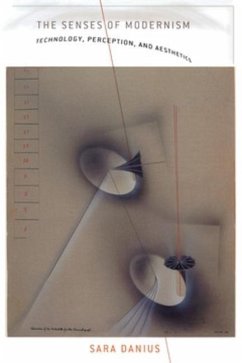In The Senses of Modernism, Sara Danius develops a radically new theoretical and historical understanding of high modernism. The author closely analyzes Thomas Mann's The Magic Mountain, Marcel Proust's Remembrance of Things Past, and James Joyce's Ulysses as narratives of the sweeping changes that affected high and low culture in the age of technological reproduction.
In her discussion of the years from 1880 to 1930, Danius proposes that the high-modernist aesthetic is inseparable from a technologically mediated crisis of the senses. She reveals the ways in which categories of perceiving and knowing are realigned when technological devices are capable of reproducing sense data. Sparked by innovations such as chronophotography, phonography, radiography, cinematography, and technologies of speed, this sudden shift in perceptual abilities had an effect on all arts of the time.
Danius explores how perception, notably sight and hearing, is staged in the three most significant modern novels in German, French, and British literature. The Senses of Modernism connects technological change and formal innovation to transform the study of modernist aesthetics. Danius questions the longstanding acceptance of a binary relationship between high and low culture and describes the complicated relationship between modernism and technology, challenging the conceptual divide between a technological culture and a more properly aesthetic one.
In her discussion of the years from 1880 to 1930, Danius proposes that the high-modernist aesthetic is inseparable from a technologically mediated crisis of the senses. She reveals the ways in which categories of perceiving and knowing are realigned when technological devices are capable of reproducing sense data. Sparked by innovations such as chronophotography, phonography, radiography, cinematography, and technologies of speed, this sudden shift in perceptual abilities had an effect on all arts of the time.
Danius explores how perception, notably sight and hearing, is staged in the three most significant modern novels in German, French, and British literature. The Senses of Modernism connects technological change and formal innovation to transform the study of modernist aesthetics. Danius questions the longstanding acceptance of a binary relationship between high and low culture and describes the complicated relationship between modernism and technology, challenging the conceptual divide between a technological culture and a more properly aesthetic one.
Dieser Download kann aus rechtlichen Gründen nur mit Rechnungsadresse in A, D ausgeliefert werden.









